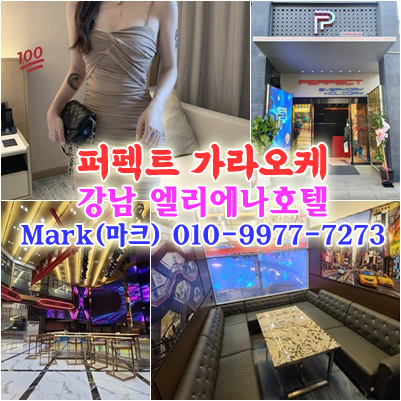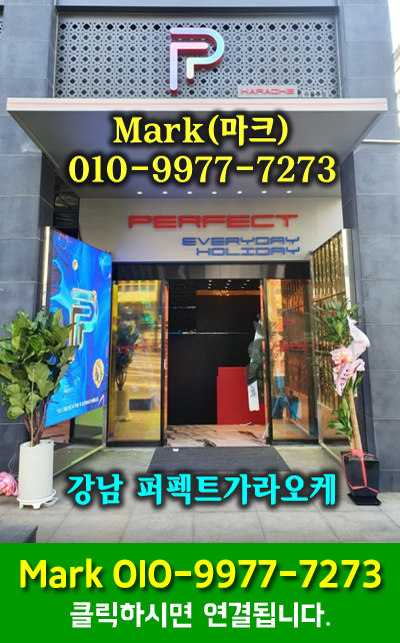Your Biggest Disadvantage: Use It To Managing ADHD Without Medication
작성자 정보
- Willis Feint 메일보내기 이름으로 검색 작성
- 작성일
컨텐츠 정보
- 16 조회
-
목록
본문
This article will provide you with a a brief overview about some treatment options for ADHD that do not require medication. These include CBT, neurofeedback, natural remedies and behavioral therapy. Each has its own benefits and adhd medication methylphenidate drawbacks. To find out more, ADHD medication read on. Also, consider how you can arrange time to review your notes. This is a great way for you to focus on the speaker's words, and listen to them. This will enable you to listen to the speaker's voice clearly.
CBT
Cognitive behavioral therapy for ADHD (also known as CBT) teaches children how to manage their impulsive behavior. In some cases, parents are even taught how to employ positive reinforcement and consistent consequences to correct their child's behavior. CBT for ADHD targets executive functions, like time management, organization, and completing tasks. Training in behavioral skills, for instance can help kids remain on top of their schoolwork and develop the skills to manage their time. These tools can be provided by professionals in education.
This study looked at the effectiveness of CBT for ADHD without medication. Instead of providing medication to treat ADHD the treatment was offered to patients for nine sessions. Each session began with psychoeducation. The therapist explained ADHD as neurobiological disorder, its symptoms and current functional impairments. Patients would then see the therapist each week for the first seven sessions, and then two times in booster sessions between weeks 15 and adhd medication for adults 20.
The most successful CBT for ADHD treatment is psychotherapy to change negative thinking patterns and behaviors. ADHD patients are able to break down complicated tasks into smaller pieces, that will allow them to control their "all-or-nothing" thinking style. In addition to improving the individual's mental state, cognitive behavioral therapy also increases their self-esteem in general. Cognitive behavioral therapy can help patients develop better relationships with others and organize their daily activities. The treatment can also assist the patient manage stress and setbacks.
CBT for ADHD is non-pharmacological, and does not cause any adverse results. It may be difficult to implement in a patient's life however the long-term effects of cognitive restructuring are usually substantial and beneficial. The treatment will succeed when the patient is motivated. CBT is a very popular treatment for ADHD that doesn't require medication.
Neurofeedback
Neurofeedback has been proven to be effective in treating ADHD. A Scientific Reports journal study has found that neurofeedback therapy has significant improvement in behavioral and electrophysiological measures in children with ADHD. Parents reported fewer disruptive behaviors during study hours. A second study published in the European Child and Adolescent Psychiatry discovered that neurofeedback could help children show significant improvement in tests of sustained attention and less reckless behavior.
The procedure involves applying electrodes to the scalp, which are used to measure brainwaves. Neurofeedback attempts to alter brainwave patterns that trigger ADD-related symptoms, such as inattention, impulsivity and irritation. This method helps those suffering from ADHD and ADD to take control of their behavior. Neurofeedback has been shown to improve focus, impulsivity and behavior in 85percent of clients.
Brain training is a different type of neurofeedback and is an alternative to ADHD medication. The method involves instructing the brain to generate the desired response. The results of these sessions will be observed in just a few days. Consult a licensed doctor or healthcare professional for the best results. These professionals are experts in ADHD treatment. They can also approve the use of neurofeedback devices for ADHD patients.
ADHD patients are also having their brainwave activity measured. An increase in alpha wave activity may reduce symptoms like hyperactivity and impulsivity, distractibility, and disorientation. Adults suffering from ADHD have also reported improvement in attention span and concentration through neurofeedback. To measure brainwave activity, a doctor places electrodes on the scalp. The data is then transmitted to computers to run a program. By retraining brainwave patterns, patients gradually learn how to control the brainwaves themselves.
Natural remedies
Medicines are a very common method of treating ADHD. They have helped many kids with ADHD get through school and improve their grades. They're not the only way to get there. You can also turn to natural remedies. If your child is not responding well to medication for autism and adhd, consider lifestyle adjustments. You will find that these methods are particularly effective when coupled with medication. Find out more here. Here are some suggestions to help manage ADHD without medication.
Be more aware of how your body and brain work. Doing so will help you regulate your sleep. When you're stressed your brain could be overwhelmed and not functioning efficiently. ADHD symptoms can be controlled by meditative practice and becoming aware of how your brain functions. However, ensure that you always consult a healthcare provider before trying any new products or skipping medications. It is important to keep in mind that your child's health issues could worsen without medication for adhd uk.
Side effects of ADHD medication may be detrimental. Natural treatments are a great option to help ease your symptoms. These natural treatments can be used in conjunction with other treatments or as a separate treatment. Lifestyle changes, nutritional strategies and brain-training can be beneficial for your child. Vitamins are essential to natural cures for ADHD. They can be found in vitamin-rich food items and supplements. Consult your doctor prior to you begin any supplement. Discuss the benefits and side effects with him. Always purchase your supplements from reputable sources and avoid using the supplements that are contaminated or expired.
Essential oils can help manage ADHD symptoms. Vetiver has been linked with more sleep and better focus. Vetiver, an essential oil, can also aid your child's focus. More research is needed to determine whether it can have the same effect on humans. One study from 2012 discovered an association between rosemary oil and better thinking. It is worth considering natural ADHD remedies that include lavender and rosemary to enhance your child's overall quality of life.
Behavioral therapy
Behavioral therapy is not necessary to treat ADHD. It works on the basis of reinforcement, and can help people change bad behaviors with more effective ones. Some examples of behavioral therapy for ADHD children include teaching the child to be more organized and avoid creating messy mess. Also, marital therapy aids couples work out their problems and ADHD medication improves communication. Behavioral therapy for ADHD is not a drug-based treatment and is suitable for children of all ages.
Although stimulant medication is commonly prescribed for ADHD However, there are some side negative effects. In fact, some people choose not to take these medicines. They can also be addictive, especially when they are misused. Therefore, the best treatment for ADHD is one that uses a combination of the use of behavioral therapy as well as natural remedies. Behavioral therapy for managing ADHD without medication is a good option If you're considering these options. These strategies are backed by research findings and practical applications. They could involve going to therapy sessions, practicing meditation, and ensuring that you have enough sleep.
The use of behavioral therapy to manage ADHD without medication can help a person overcome the problem and learn to manage the challenges. This type of treatment is not a form of medication. Instead, it involves the use tools to help people alter their negative thoughts and emotions. It can help people shift their "all or nothing" attitude and help them learn how to deal with stressful situations. It can also boost self-esteem.
Stimulant medications are the most frequently prescribed treatment for ADHD. They can be effective for short-term ADHD, but they also have long-term negative effects. They also don't deal with the child's relationship with family or friends. For adolescents, it's recommended to combine the use of behavior therapy and medication. It's important to keep in mind that the two options aren't always the best adhd medication for adults for children suffering from ADHD. You'll need to decide the best adhd medication option for your child.
Consultation with a doctor
The signs of ADHD can be difficult to manage without medication. In the beginning, it's important to know the signs of ADHD. The symptoms should be present by the time your child is 12 years old of age, in multiple settings or be affecting your child’s life. A physical exam can be used to determine the severity of your child's ADHD symptoms. This will eliminate any other medical conditions that might mimic ADHD.
When choosing a provider select a provider that you feel comfortable. If you're comfortable sharing your symptoms with them, you'll have an easier to get the help you require. It is vital to find the right professional to manage ADHD without the use of medication. There are instances when you'll need to seek another opinion. You should consult a different doctor if you feel that your doctor is not listening to your concerns.
Prior to that, the signs of ADHD were defined as the inability to sustain progress towards an end goal. The people with ADHD are unable to stay focused on any task, even after procrastination. They tend to procrastinate and do not get any work completed. Those symptoms are the primary reason why medication is so crucial. Apart from affecting your child's quality of life, issues with attention can impact their work. You must be competent in managing ADHD symptoms, regardless of whether you are working at home or participating in a sport.
While ADHD medication is very effective, it does not solve the issues of disordered thinking and poor time management, procrastination, forgetfulness, and poor organization. Because of this, medication must be combined with other therapies, such as therapy and education. A psychologist or a mental health professional can assist you to decide on the best treatment for your child. It's also recommended to seek help from a professional when you're unsure about a diagnosis.
CBT
Cognitive behavioral therapy for ADHD (also known as CBT) teaches children how to manage their impulsive behavior. In some cases, parents are even taught how to employ positive reinforcement and consistent consequences to correct their child's behavior. CBT for ADHD targets executive functions, like time management, organization, and completing tasks. Training in behavioral skills, for instance can help kids remain on top of their schoolwork and develop the skills to manage their time. These tools can be provided by professionals in education.
This study looked at the effectiveness of CBT for ADHD without medication. Instead of providing medication to treat ADHD the treatment was offered to patients for nine sessions. Each session began with psychoeducation. The therapist explained ADHD as neurobiological disorder, its symptoms and current functional impairments. Patients would then see the therapist each week for the first seven sessions, and then two times in booster sessions between weeks 15 and adhd medication for adults 20.
The most successful CBT for ADHD treatment is psychotherapy to change negative thinking patterns and behaviors. ADHD patients are able to break down complicated tasks into smaller pieces, that will allow them to control their "all-or-nothing" thinking style. In addition to improving the individual's mental state, cognitive behavioral therapy also increases their self-esteem in general. Cognitive behavioral therapy can help patients develop better relationships with others and organize their daily activities. The treatment can also assist the patient manage stress and setbacks.
CBT for ADHD is non-pharmacological, and does not cause any adverse results. It may be difficult to implement in a patient's life however the long-term effects of cognitive restructuring are usually substantial and beneficial. The treatment will succeed when the patient is motivated. CBT is a very popular treatment for ADHD that doesn't require medication.
Neurofeedback
Neurofeedback has been proven to be effective in treating ADHD. A Scientific Reports journal study has found that neurofeedback therapy has significant improvement in behavioral and electrophysiological measures in children with ADHD. Parents reported fewer disruptive behaviors during study hours. A second study published in the European Child and Adolescent Psychiatry discovered that neurofeedback could help children show significant improvement in tests of sustained attention and less reckless behavior.
The procedure involves applying electrodes to the scalp, which are used to measure brainwaves. Neurofeedback attempts to alter brainwave patterns that trigger ADD-related symptoms, such as inattention, impulsivity and irritation. This method helps those suffering from ADHD and ADD to take control of their behavior. Neurofeedback has been shown to improve focus, impulsivity and behavior in 85percent of clients.
Brain training is a different type of neurofeedback and is an alternative to ADHD medication. The method involves instructing the brain to generate the desired response. The results of these sessions will be observed in just a few days. Consult a licensed doctor or healthcare professional for the best results. These professionals are experts in ADHD treatment. They can also approve the use of neurofeedback devices for ADHD patients.
ADHD patients are also having their brainwave activity measured. An increase in alpha wave activity may reduce symptoms like hyperactivity and impulsivity, distractibility, and disorientation. Adults suffering from ADHD have also reported improvement in attention span and concentration through neurofeedback. To measure brainwave activity, a doctor places electrodes on the scalp. The data is then transmitted to computers to run a program. By retraining brainwave patterns, patients gradually learn how to control the brainwaves themselves.
Natural remedies
Medicines are a very common method of treating ADHD. They have helped many kids with ADHD get through school and improve their grades. They're not the only way to get there. You can also turn to natural remedies. If your child is not responding well to medication for autism and adhd, consider lifestyle adjustments. You will find that these methods are particularly effective when coupled with medication. Find out more here. Here are some suggestions to help manage ADHD without medication.
Be more aware of how your body and brain work. Doing so will help you regulate your sleep. When you're stressed your brain could be overwhelmed and not functioning efficiently. ADHD symptoms can be controlled by meditative practice and becoming aware of how your brain functions. However, ensure that you always consult a healthcare provider before trying any new products or skipping medications. It is important to keep in mind that your child's health issues could worsen without medication for adhd uk.
Side effects of ADHD medication may be detrimental. Natural treatments are a great option to help ease your symptoms. These natural treatments can be used in conjunction with other treatments or as a separate treatment. Lifestyle changes, nutritional strategies and brain-training can be beneficial for your child. Vitamins are essential to natural cures for ADHD. They can be found in vitamin-rich food items and supplements. Consult your doctor prior to you begin any supplement. Discuss the benefits and side effects with him. Always purchase your supplements from reputable sources and avoid using the supplements that are contaminated or expired.
Essential oils can help manage ADHD symptoms. Vetiver has been linked with more sleep and better focus. Vetiver, an essential oil, can also aid your child's focus. More research is needed to determine whether it can have the same effect on humans. One study from 2012 discovered an association between rosemary oil and better thinking. It is worth considering natural ADHD remedies that include lavender and rosemary to enhance your child's overall quality of life.
Behavioral therapy
Behavioral therapy is not necessary to treat ADHD. It works on the basis of reinforcement, and can help people change bad behaviors with more effective ones. Some examples of behavioral therapy for ADHD children include teaching the child to be more organized and avoid creating messy mess. Also, marital therapy aids couples work out their problems and ADHD medication improves communication. Behavioral therapy for ADHD is not a drug-based treatment and is suitable for children of all ages.
Although stimulant medication is commonly prescribed for ADHD However, there are some side negative effects. In fact, some people choose not to take these medicines. They can also be addictive, especially when they are misused. Therefore, the best treatment for ADHD is one that uses a combination of the use of behavioral therapy as well as natural remedies. Behavioral therapy for managing ADHD without medication is a good option If you're considering these options. These strategies are backed by research findings and practical applications. They could involve going to therapy sessions, practicing meditation, and ensuring that you have enough sleep.
The use of behavioral therapy to manage ADHD without medication can help a person overcome the problem and learn to manage the challenges. This type of treatment is not a form of medication. Instead, it involves the use tools to help people alter their negative thoughts and emotions. It can help people shift their "all or nothing" attitude and help them learn how to deal with stressful situations. It can also boost self-esteem.
Stimulant medications are the most frequently prescribed treatment for ADHD. They can be effective for short-term ADHD, but they also have long-term negative effects. They also don't deal with the child's relationship with family or friends. For adolescents, it's recommended to combine the use of behavior therapy and medication. It's important to keep in mind that the two options aren't always the best adhd medication for adults for children suffering from ADHD. You'll need to decide the best adhd medication option for your child.
Consultation with a doctor
The signs of ADHD can be difficult to manage without medication. In the beginning, it's important to know the signs of ADHD. The symptoms should be present by the time your child is 12 years old of age, in multiple settings or be affecting your child’s life. A physical exam can be used to determine the severity of your child's ADHD symptoms. This will eliminate any other medical conditions that might mimic ADHD.
When choosing a provider select a provider that you feel comfortable. If you're comfortable sharing your symptoms with them, you'll have an easier to get the help you require. It is vital to find the right professional to manage ADHD without the use of medication. There are instances when you'll need to seek another opinion. You should consult a different doctor if you feel that your doctor is not listening to your concerns.
Prior to that, the signs of ADHD were defined as the inability to sustain progress towards an end goal. The people with ADHD are unable to stay focused on any task, even after procrastination. They tend to procrastinate and do not get any work completed. Those symptoms are the primary reason why medication is so crucial. Apart from affecting your child's quality of life, issues with attention can impact their work. You must be competent in managing ADHD symptoms, regardless of whether you are working at home or participating in a sport.
While ADHD medication is very effective, it does not solve the issues of disordered thinking and poor time management, procrastination, forgetfulness, and poor organization. Because of this, medication must be combined with other therapies, such as therapy and education. A psychologist or a mental health professional can assist you to decide on the best treatment for your child. It's also recommended to seek help from a professional when you're unsure about a diagnosis.
관련자료
-
이전
-
다음
댓글 0
등록된 댓글이 없습니다.












